




towards a circular economy
As Chief Supply Chain & Sustainability Officer at MT Unirepair, Adrian Reyes is at the forefront of transforming the after-sales service industry through innovation, resilience, and a deep-rooted commitment to circularity. With a career defined by operational excellence and sustainability leadership, Reyes brings a strategic vision that aligns supply chain performance with measurable environmental impact. In this exclusive interview, he shares how MT Unirepair is leveraging advanced technologies, strategic partnerships, and forward-thinking frameworks to not only meet the demands of today’s market,, but to shape the future of sustainable supply chain management across Europe and beyond.



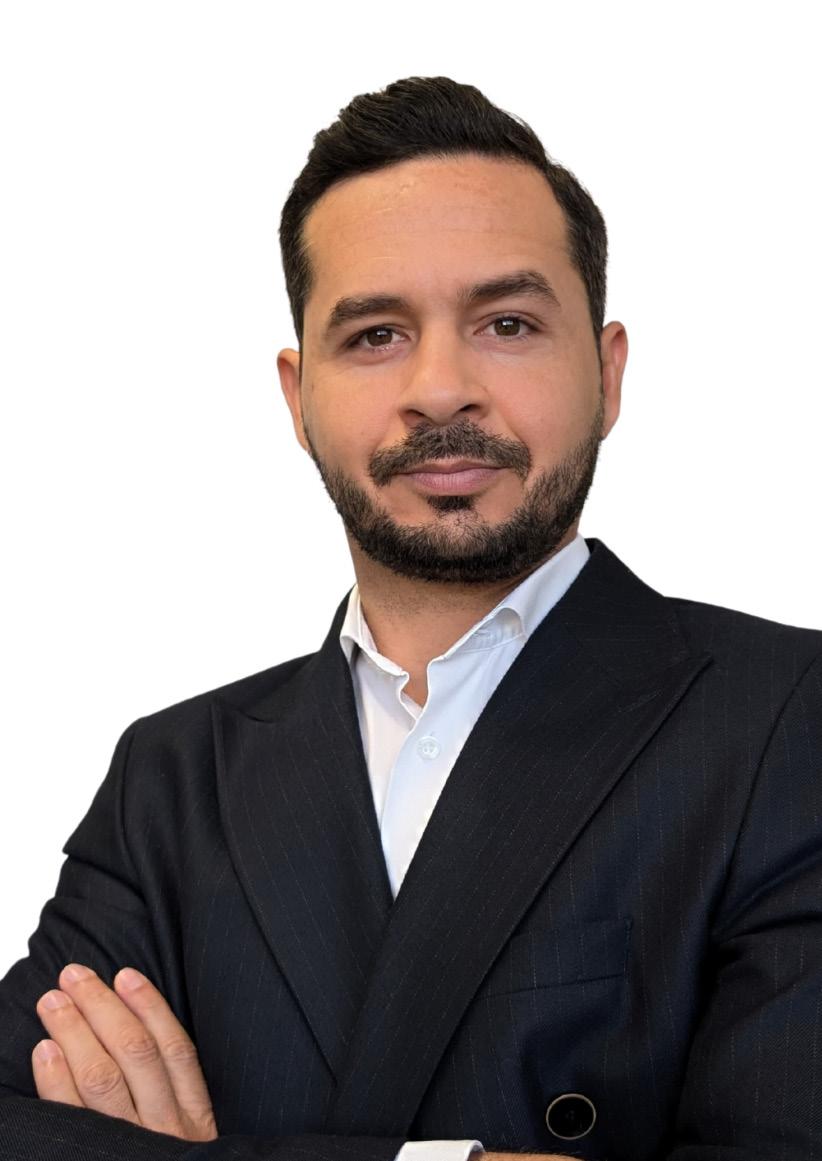
Can you share your professional journey and what led you to your current role as Chief Supply Chain & Sustainability Officer at MT Unirepair?
My professional development has been driven by a strong dedication to sustainability alongside supply chain excellence. Over the years, I’ve worked across various industries and international markets, which has provided me with global insights into logistics and operational strategy. These diverse experiences allowed me to gain a deep understanding of complex supply networks and to develop tailored best practices for different operational environments.
My journey ultimately led me to MT Unirepair, where I currently serve as Chief Supply Chain & Sustainability Officer. In this role, I apply my extensive practical knowledge to lead operations optimisation initiatives that minimise waste and enhance customer value through circular practices. Throughout my career, I’ve remained focused on building responsible and resilient supply chain leadership.
MT Unirepair operates at the intersection of circular economy and high-tech repair. How does your role help align supply chain strategy with the company’s commitment to sustainability and innovation?
MT Unirepair is dedicated to circularity and sustainability within the high-tech repair sector, with a particular focus on industrial printing. My role bridges strategic planning and operational execution to ensure that our entire supply chain supports this mission. I work across departments to align procurement operations, refurbishment processes, and logistics systems with our environmental objectives.
Circular thinking is embedded in our core operations, enabling us to help customers extend the lifecycle of critical components while reducing environmental impact. The company consistently embraces innovation in responsible practices, and I am committed to designing and implementing processes that advance sustainability for both MT Unirepair and our customers.
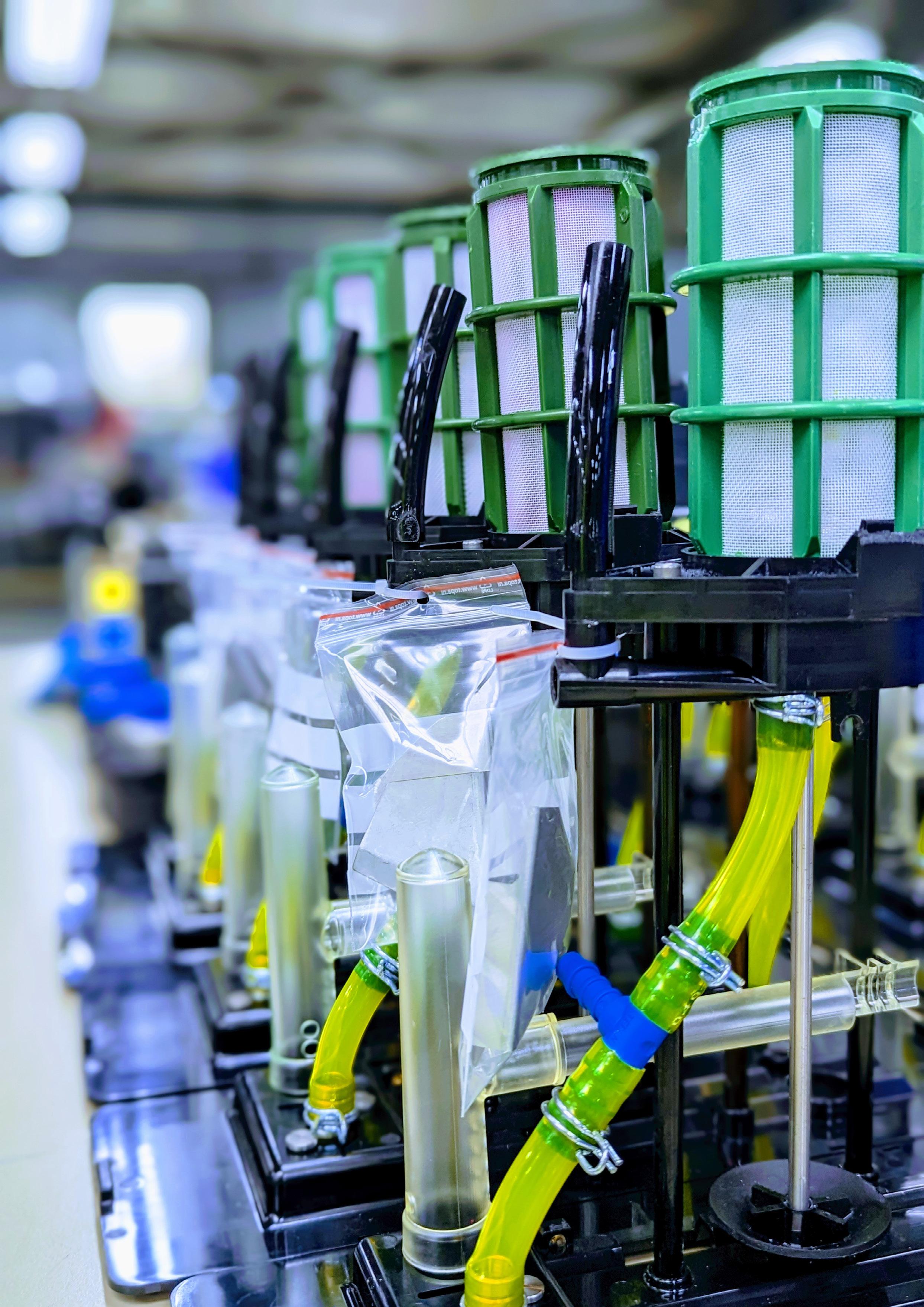
What are some of the key sustainability initiatives you’ve led at MT Unirepair, and how do these contribute to both environmental goals and operational efficiency?
At MT Unirepair, we view extending the lifecycle of products as one of the most impactful levers in achieving true circularity. Every additional cycle a part completes avoids the need for raw material extraction, manufacturing, and distribution of a new item, processes that are both resource, and carbon-intensive. By keeping products and components in use for longer, we significantly reduce waste and emissions while maximising the value of each item. This approach supports both sustainability and cost efficiency.
We’ve implemented CSRD-aligned frameworks to ensure our efforts are measurable and transparent, and we’ve fostered supplier collaboration to improve ESG performance across our network. Importantly, MT Unirepair is also part of a forward-thinking consortium dedicated to developing a Digital Product Passport, a key tool for enabling circularity in electronics and industrial components. This innovation will allow for better tracking of materials, repair history, and carbon impact across each product’s lifecycle, ensuring informed decision-making for all stakeholders.
Together, these initiatives reflect our commitment to measurable sustainability, smarter resource use, and continuous innovation that moves the industry toward a truly circular model.
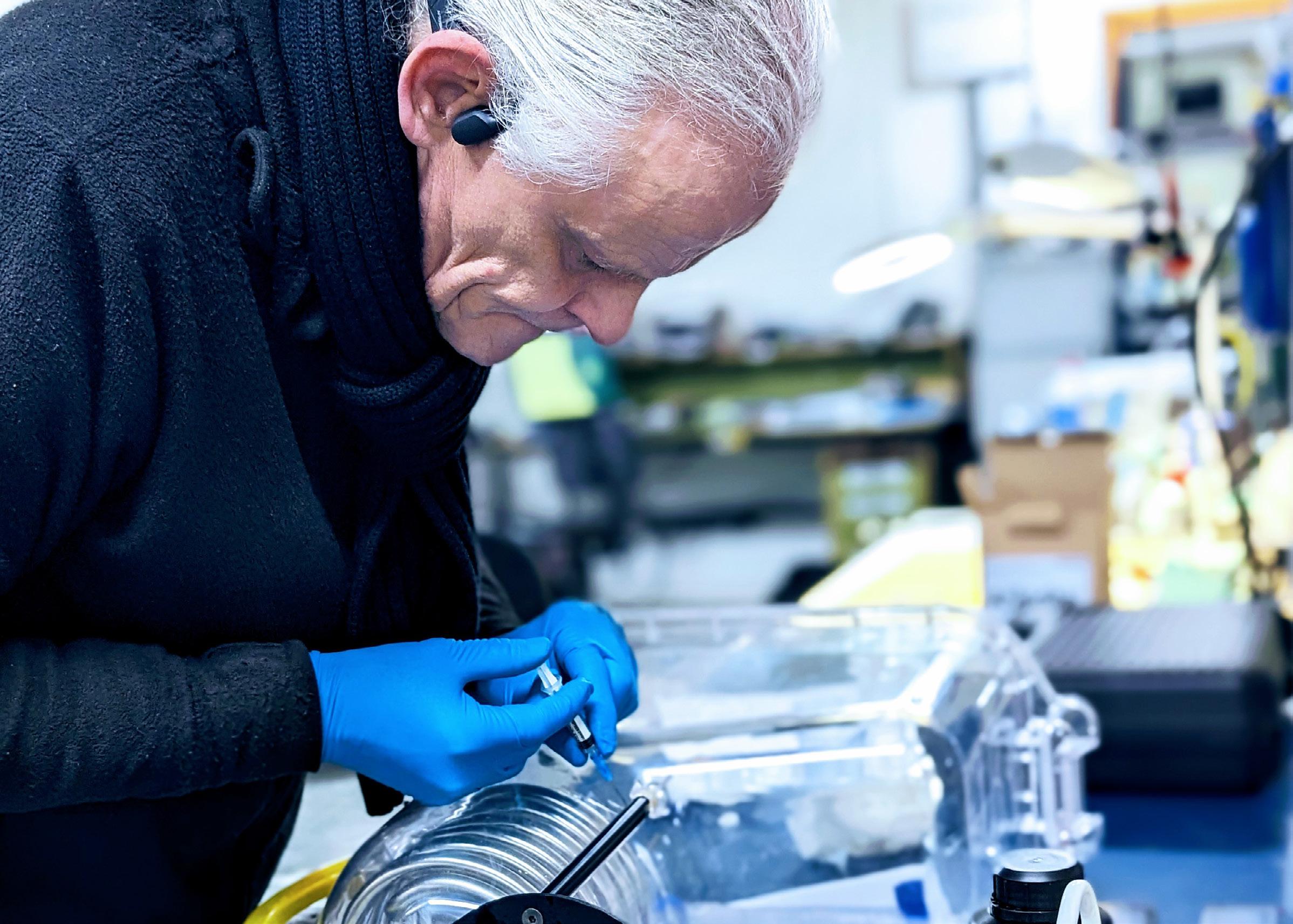

How is MT Unirepair leveraging circular supply chain models to extend product life cycles and minimise waste?
Our approach to circular supply chain management is both practical and impactful. At MT Unirepair, we prioritise repair, reuse, and refurbishment over replacement. Instead of discarding used parts, we restore them to peak functionality, enabling multiple life cycles and significantly reducing the need for new production.
This philosophy is applied across our operations and is supported by a network of skilled suppliers and technical experts. The result is a closed-loop system that reduces material waste, cuts emissions, and delivers long-term value for our clients. It’s a smarter way to manage resources, and a key pillar of our competitive advantage.
In what ways is technology (e.g. AI, IoT, or automation) helping you optimise repair services and reverse logistics within your supply chain?
Technology is a powerful enabler of our sustainability goals. We’ve introduced AI-driven diagnostics to accelerate repair decisions and implemented IoT solutions to gain real-time visibility across our logistics network. Predictive analytics helps us manage inventory more efficiently and anticipate customer needs, while automation supports consistent, high-quality refurbishment outcomes.
These innovations are not just about improving efficiency, they also help us reduce waste, enhance traceability, and deliver better service to our clients. By continuously investing in smart technologies, we ensure our supply chain remains agile, transparent, and aligned with our commitment to circularity.


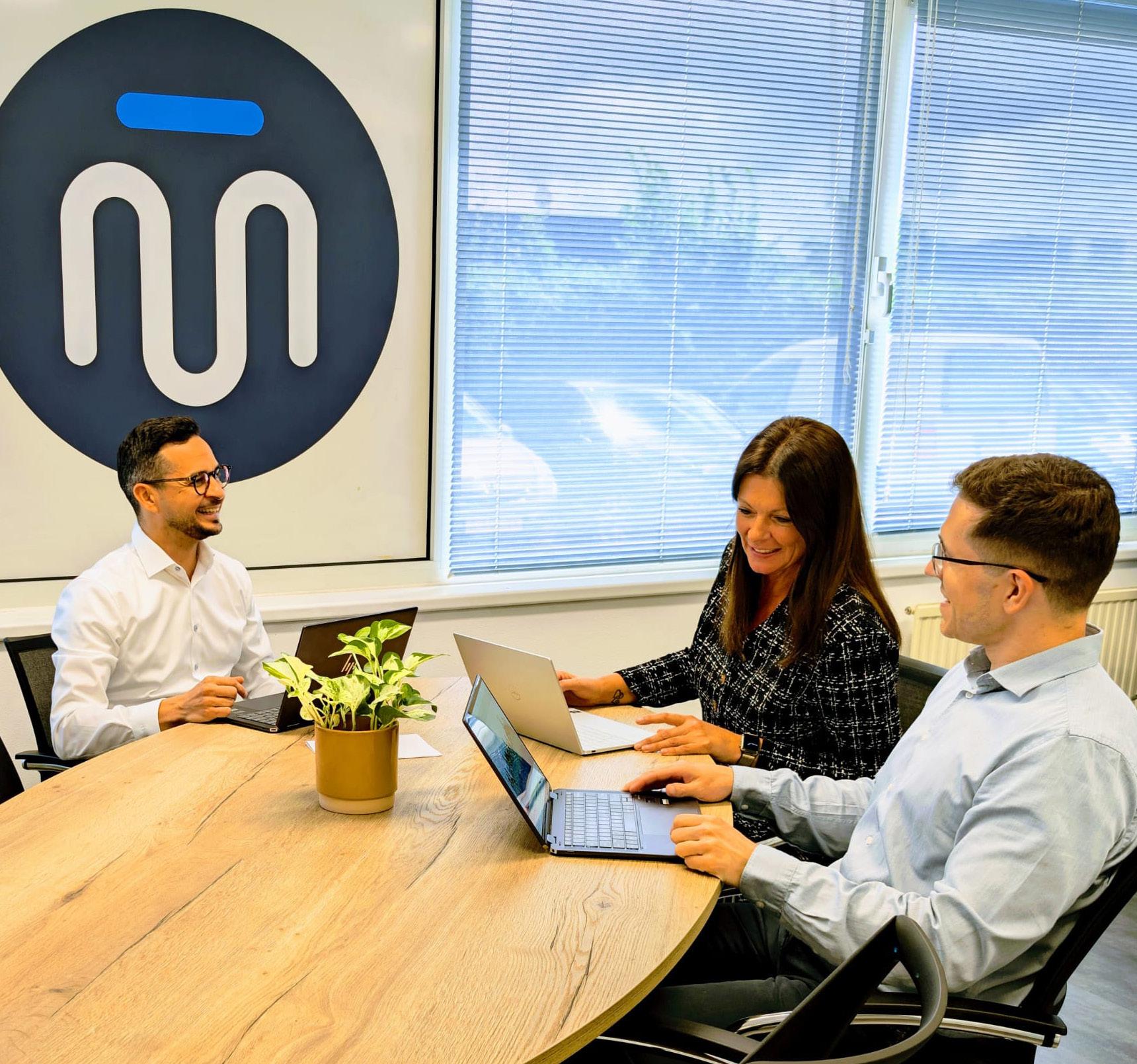
How important are your supply chain and service partners in supporting MT Unirepair’s sustainability goals, and what do you look for in a strategic partner?
Our supply chain is only as strong as the partners who support it. We work closely with a global network of suppliers and service providers who share our values around sustainability and circularity. When selecting partners, I look for reliability, transparency, and a demonstrated commitment to continuous improvement.
Whether it’s sourcing spare parts or coordinating complex repairs, collaboration is essential. Our partners help us maintain high quality standards, ensure timely delivery, and scale our services effectively. By fostering open, long-term relationships, we build a resilient network that supports our mission and evolves with us as we grow.
What are the biggest challenges you’ve faced in building a sustainable and resilient supply chain, especially across multiple European markets?
Resilience in today’s supply chain landscape means being prepared for the unpredictable, geopolitical tensions, regulatory shifts, or disruptions in transportation. At MT Unirepair, we’ve experienced this firsthand. A significant part of our supplier base is located in Israel, and recent geopolitical developments created complex barriers. Airlines began limiting freight capacity, and some partners hesitated to engage with shipments transiting through the region. Our response had to be swift and strategic. We mapped out alternative logistics routes, collaborated closely with partners to redirect critical components through third countries, and leaned into local European stockholding strategies to buffer volatility.
Regulatory complexity is another ongoing challenge, especially with evolving frameworks like CBAM and CSRD. To manage these proactively, we’ve invested in digital compliance tools and cross-border expertise.
What matters most is staying connected, maintaining constant dialogue with partners, regulators, and internal teams. Challenges like these test your systems, but they also sharpen your ability to adapt. Our approach is grounded in agility, strong relationships, and a proactive mindset that enables us not just to withstand disruptions, but to evolve through them.
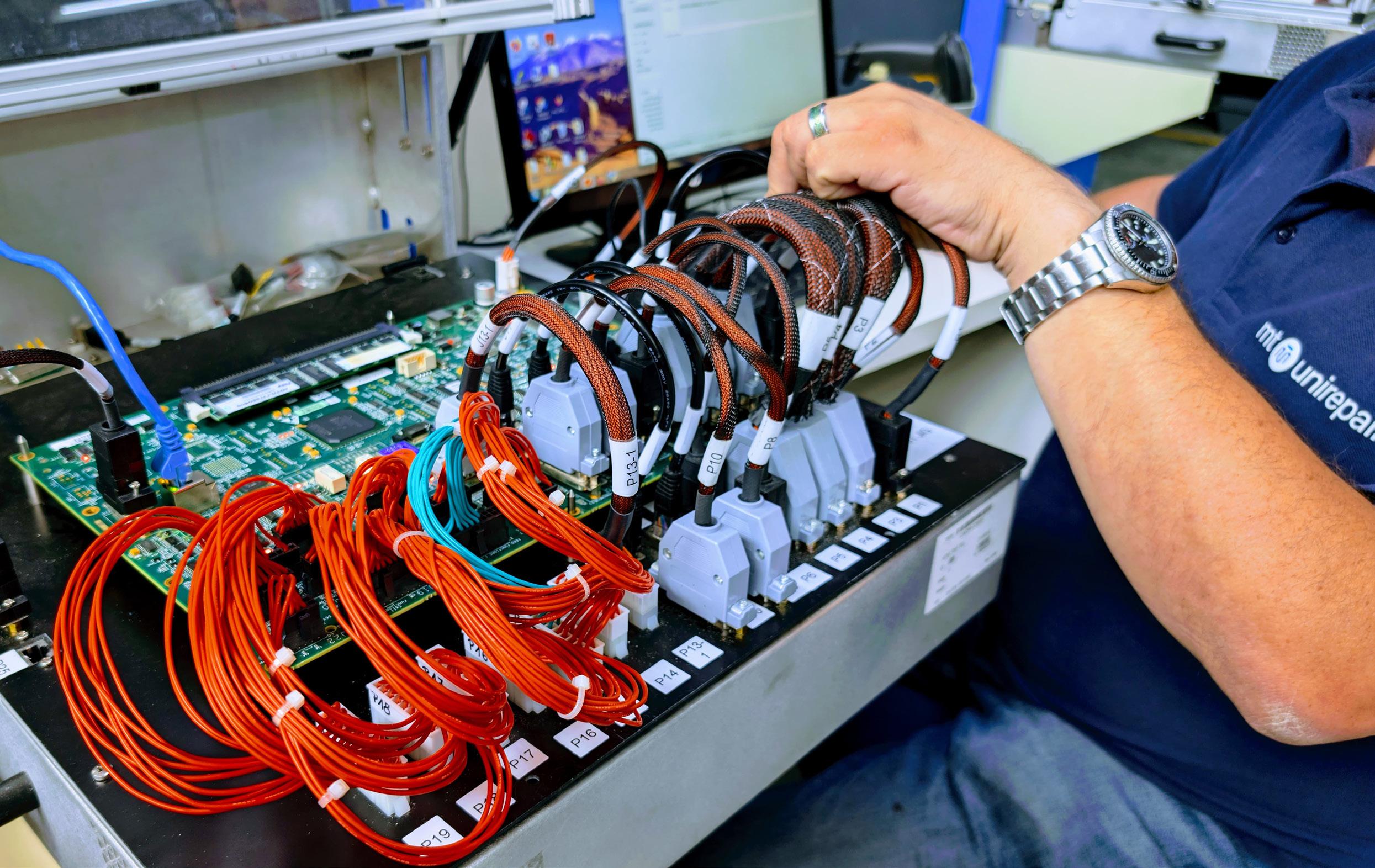
Are you seeing increased demand from your clients for more sustainable service options? How is MT Unirepair responding to these shifting expectations?
We’re seeing a clear shift not only in customer expectations but also across the entire regulatory and market landscape. Today, clients are no longer satisfied with just quality and efficiency, they want proof that services are sustainable and aligned with circular principles. This shift is being driven by new EU regulations, growing investor scrutiny, and increasing stakeholder demand for transparency and accountability.
The introduction of measures like the Digital Product Passport and CSRD reporting frameworks is redefining what success looks like in our industry. At MT Unirepair, we respond by offering a model rooted in product lifecycle extension, responsible sourcing, and measurable environmental impact. Our clients, including global leaders in the printing sector, want partners who can help them achieve their ESG goals without compromising performance.
We provide data, traceability, and clear evidence of reduced emissions and resource use. But more than that, we create value by demonstrating that circularity is not just about compliance, it’s a smarter, more resilient way to do business. As demand continues to grow, we’re ready, not only because it’s expected, but because it reflects how we believe supply chains should operate: sustainable, collaborative, and forward-looking.

What KPIs or impact metrics do you use to measure success in both your supply chain performance and sustainability progress?
We rely on a combination of operational and sustainability metrics to guide our performance. Key indicators include repair turnaround time, delivery reliability, and inventory efficiency. On the environmental side, we track reuse rates, waste reduction, and carbon footprint across our processes.
We also measure compliance with sustainability frameworks to ensure continuous improvement. These KPIs provide a clear picture of where we’re succeeding and where we can do better. More importantly, they help us quantify the impact we’re making, for our clients, our operations, and the planet.
Looking ahead, what are your top priorities for MT Unirepair’s supply chain and sustainability agenda over the next 3–5 years?
Looking ahead, our mission is to redefine the after-sales service landscape by fully embedding circularity into every layer of the supply chain. Over the next three to five years, we plan to expand our presence in strategic markets, invest in stronger data infrastructures, and deliver complete traceability for every refurbished part we handle.
The future demands more than efficiency, it calls for accountability, innovation, and collaboration at scale. We’re developing advanced tools that will allow our clients to see, in real time, the environmental and economic impact of their choices. We’re also strengthening supplier engagement to ensure shared values around sustainability and resilience.
But above all, we are working to lead by example. We want MT Unirepair to stand not just as a reliable service provider, but as a catalyst for change in how industries manage products beyond their first life. If we can prove that performance, profit, and sustainability are not mutually exclusive, then we’re not just evolving supply chains, we’re helping reshape the manufacturing mindset. That’s our vision, and it’s a future we’re committed to building with every decision we make.

MT Unirepair B.V. is a Netherlands-based leader in circular product services, offering high-quality repair, refurbishment, reverse logistics, engineering support, and procurement solutions. Since 1968, the company has extended product lifecycles, reduced waste, and supported sustainable operations through global after-sales and technical services.
